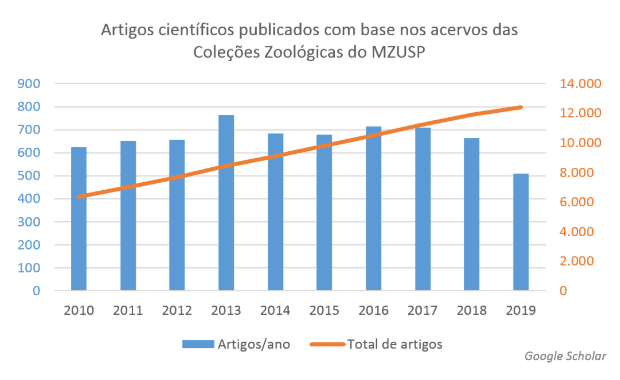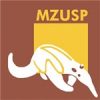Biodiversity Knowledge
Common results of the research developed in the Program are the discovery of new species, the production of faunistic inventories, and determination of the geographic distribution of the most diverse animal groups. Professores and students at MZUSP have already described thousands of animal species that were unknown to science, and this number continues to grow at accelerated rates. The results of biodiversity research conducted at MZUSP are fundamental to the knowledge of the planet’s biodiversity. Most of these studies involve groups that inhabit the Neotropical region, the area with the highest concentration of biodiversity on the planet and which, therefore, arouses global interest. The need to conduct basic studies on biodiversity becomes more and more imperative in view of climate change and the exponential growth of the destruction of endemic areas and biodiversity hotspots.
Zoological Collections
The Museu de Zoologia da Universidade de São Paulo is a faithful depository of biological heritage samples with the Ministry of the Environment and houses several of the largest zoological collections in the country. The collection accumulates approximately 11 million specimens obtained over more than a century of research and scientific expeditions to the great Brazilian biomes and aquatic environments. This heritage has inestimable value for research and is accessed by scientists from various parts of Brazil and the world. Every year, MZUSP sends thousands of specimens from its collections to researchers based in other institutions and receives more than 200 external researchers who come to study in loco the specimens deposited in its collections. With this, the material from MZUSP’s collections subsidizes the production of about 650 scientific articles per year worldwide (more than 12,000 in total; source: Google Scholar).

The records of MZUSP’s zoological collections are available for free online consultation through the Brazilian Biodiversity Information System (SiBBr) portal.
Environmental policies
The research on biodiversity developed in the program is essential for the development of environmental public policies, such as the delimitation of priority conservation areas in the Brazilian territory. The program’s students and professors often participate in workshops to evaluate threatened species, such as those promoted by the Chico Mendes Institute for Biodiversity Conservation (ICMBio). Some professors also work in offices encharged of environmental policy management and exploitation of products derived from biodiversity. As a faithful depository of biological heritage and possessing adequate infrastructure and highly qualified professionals, the MZUSP’s collections are home to large quantities of biological material that testify to the monitoring and evaluation of the environmental impact of large enterprises carried out on Brazilian territory (for example, hydroelectric plants, highways, and oil exploration platforms).
Public exhibition
An important part of the Program’s social insertion takes place through the participation of professors and students in exhibitions open to the public. Students and supervisors participated in the exhibition curatorial committees, contributing with ideas and bringing proposals to the projects. The current exhibition project of MZUSP included the “Discovery Room”, a space within the exhibition that enables interaction between the general public and MZUSP’s graduate students and postdoctoral researchers. This space has been used on a regular basis for lectures and workshops. For the Program’s students and professors, the space represents a communication opportunity with a non-academic public, fostering dialogue between the university and society on topics of global interest such as biodiversity, evolution, conservation, and climate change. For more information on MZUSP exhibition activities, click here.
Scientific dissemination
MZUSP promotes several scientific dissemination events with the general public. One of the events with the greatest repercussion is the annual celebration of Darwin Day. Since 2006, when it was originally conceived and implemented by a group of Graduate students, it has become part of the institution’s official calendar of activities. The students participate in several ways, from the organization to the promotion of activities for the dissemination and popularization of science, aimed at the general public. In addition, throughout the year, students and professors of the Program give lectures and workshops within the activities for the general public organized by the Outreach Division (OD) of MZUSP.

